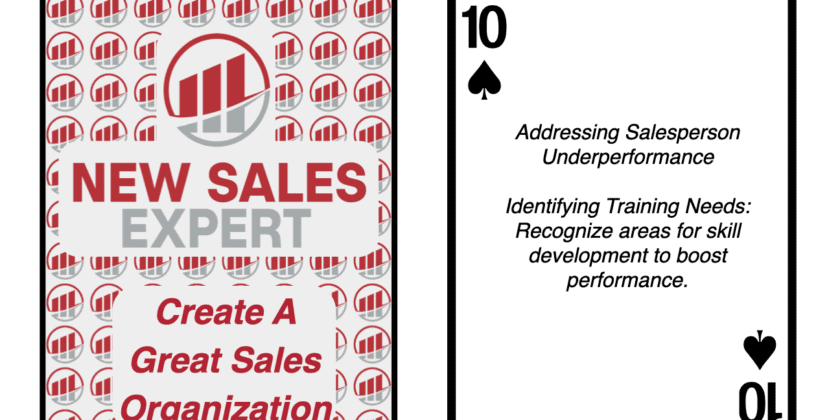Sales coaching has become integral to the modern business environment, particularly in business-to-business (B2B) sales. The sales coaching process enhances salespeople’s skills, knowledge, and capabilities to achieve their goals, deliver value to customers, and improve organizational performance. In this article, we will examine the importance of sales coaching in B2B sales organizations, explore the best practices for effective coaching, and discuss the key benefits that result from a well-executed sales coaching program.
Sales coaching has become increasingly critical to the success of B2B sales organizations. Equipping salespeople with the skills, knowledge, and resources they need to deliver value to customers and drive business growth is essential. Here are three reasons why sales coaching is critical in B2B sales organizations.
Firstly, sales coaching helps salespeople to develop the necessary skills and knowledge to engage with customers, understand their goals or priorities, and provide tailored solutions. In a B2B sales environment, customers’ goals are often complex and unique, making it challenging to identify the best strategies for engaging with them. Effective sales coaching helps salespeople identify the most effective ways to engage with customers, build rapport, and establish trust. Through regular feedback and guidance, sales coaches can provide salespeople with insights on approaching different customer scenarios, offering valuable insights, and delivering a superior customer experience.
Sales coaching provides salespeople the necessary tools to improve their communication skills, such as active listening and effective questioning techniques. This active listening capability enables salespeople to understand customers’ unique goals and motivations better, allowing salespeople to provide tailored solutions that meet prospects’ expectations. This skill is essential in B2B sales organizations, where customers’ needs are complex and varied.
Secondly, sales coaching is essential for enhancing the performance of sales teams. Sales coaching helps salespeople to focus on their strengths and weaknesses, set clear goals, and develop strategies for achieving them. Coaching provides salespeople with performance feedback, identifies improvement areas, and provides guidance on addressing these areas. This, in turn, leads to improved sales performance, increased productivity, and higher levels of job satisfaction.
Effective sales coaching can help salespeople identify areas where they need to improve, such as their communication, time management, or presentation skills. Sales coaches can provide their teams with targeted feedback and guidance, offering practical solutions for improving performance. This not only helps salespeople to become more effective at their job, but it also helps them to feel more confident and engaged in their work.
Thirdly, sales coaching helps to create a culture of continuous learning within B2B sales organizations. Sales coaching enables salespeople to develop new skills, learn about new products and services, and keep up-to-date with industry trends. Continuous learning is vital for B2B sales organizations that operate in a dynamic and fast-paced environment, where the ability to adapt and learn quickly is essential for success.
Sales coaching allows salespeople to learn from their experiences and mistakes in a safe environment that doesn’t affect their revenue production. Sales coaches can guide how to approach different customer scenarios, offer valuable insights, and help salespeople to develop new skills. By fostering a culture of continuous learning, sales coaching can help B2B sales organizations to stay ahead of the curve and remain competitive in their industry.
Best Practices for Effective Sales Coaching
To ensure that sales coaching is effective, B2B sales organizations must adopt best practices aligned with their organizational goals and objectives. The following are some of the best practices for effective sales coaching:
- Provide Timely and Relevant Feedback: Feedback is critical to effective sales coaching. Managers and team members should provide feedback in a constructive manner that focuses on improvement rather than criticism. Feedback should be timely, relevant, and focused on specific behaviors or actions.
- Focus on Skill Development: Effective sales coaching should focus on developing the skills and knowledge necessary for success in a B2B sales environment. This includes communication, negotiation, problem-solving, and product and industry knowledge.
- Use a Coaching Framework: To ensure that sales coaching is consistent and effective, B2B sales organizations should use a coaching framework that provides a structured approach to coaching. A coaching framework should include a straightforward process for setting goals, giving feedback, and developing skills.
- Measure and Evaluate Coaching Effectiveness: B2B sales organizations should measure and evaluate revenue generation to ensure that sales coaching is effective. This includes tracking sales performance metrics, such as revenue, customer satisfaction, and retention rates.
Critical Benefits of Sales Coaching in B2B Sales Organizations
Effective sales coaching can deliver a range of benefits to B2B sales organizations. The following are some of the key benefits that result from a well-executed sales coaching program:
- Improved Sales Performance: Effective sales coaching can lead to improved sales performance, increased productivity, and higher levels of job satisfaction. Sales coaching provides salespeople the necessary skills, knowledge, and support to achieve their sales goals and deliver customer value. This, in turn, leads to increased sales revenue, higher customer satisfaction, and higher customer retention.
- Increased Employee Engagement: Sales coaching can help to increase employee engagement and motivation. When salespeople receive regular feedback, guidance, and support from their coaches, they feel more valued and invested in their work. This, in turn, leads to higher levels of job satisfaction and lower turnover rates.
- Enhanced Customer Relationships: Effective sales coaching can help salespeople build stronger customer relationships. Sales coaching can help salespeople to identify customer needs, provide tailored solutions, and establish trust. This leads to stronger customer relationships, higher customer satisfaction, and greater customer loyalty.
- Continuous Learning: Sales coaching helps create a continuous learning culture within B2B sales organizations. Sales coaching provides salespeople opportunities to learn new skills, develop their knowledge of products and services, and keep up-to-date with industry trends. This, in turn, leads to more significant innovation, improved performance, and competitive advantage.
- Aligned Goals of the Company and the Team: By doing an adequate job of sales coaching, the salespeople are working toward the same goals as the company. This prevents wasted activities that don’t serve the purposes of the company. Let’s discuss this a bit more.
Setting Clear Goals and Objectives
Setting clear goals and objectives for salespeople is crucial to the success of any B2B sales organization. These goals and objectives provide a framework for salespeople to work within and help to focus their efforts on achieving specific outcomes. Here are some reasons why setting clear goals and objectives is essential for salespeople:
Setting Clear Goals and Objectives: Coaching provides a sense of direction and focus.
Setting clear goals and objectives helps salespeople to understand what they are working towards and what they need to do to achieve success. Having a sense of direction and focus is essential for salespeople as it helps them to prioritize their tasks, make informed decisions that align with their company’s needs, and stay motivated.
Setting Clear Goals and Objectives: Helps to measure progress and success.
Setting clear goals and objectives allows salespeople to measure their progress and success. This is important as it provides a sense of achievement and helps to maintain motivation. Tracking progress will enable salespeople to adjust their approach to get on track to meet their goals.
Setting Clear Goals and Objectives: Creates accountability.
Setting clear goals and objectives helps to create accountability for salespeople. When goals and objectives are clearly defined, salespeople are more likely to take ownership of their work and strive to achieve their targets. This sense of ownership and accountability helps create a performance culture and can increase job satisfaction and employee retention.
Setting Clear Goals and Objectives: Aligns salespeople with the organization’s overall objectives.
Setting clear goals and objectives ensures that salespeople align with the organization’s overall objectives. This alignment is crucial as it helps to ensure that everyone is working towards the same goal and that the organization is moving in the right direction, as defined by company leadership. This can help create a sense of purpose and meaning for salespeople, increasing motivation and engagement.
When setting goals and objectives for salespeople, it is essential to ensure that they are specific, measurable, achievable, relevant, and time-bound. These SMART criteria help to ensure that goals and objectives are meaningful and actionable. Here are some tips for setting SMART goals and objectives for salespeople:
- Be specific: Clearly define what you want salespeople to achieve, such as revenue targets or the number of new customers.
- Make them measurable: Ensure that goals and objectives are measurable so everyone can track their progress and adjustments can be made if necessary.
- Make them achievable: Set goals and objectives that are challenging but achievable. Setting unrealistic goals can lead to demotivation and disengagement.
- Make them relevant: Ensure that goals and objectives are relevant to the salesperson’s role and the organization’s overall objectives.
- Make them time-bound: Set a clear timeframe for achieving goals and objectives. This helps to create a sense of urgency and ensures that salespeople are focused on achieving their targets.
Effective sales coaching that includes setting clear goals and objectives is a critical component of success in B2B sales organizations. It helps salespeople develop the skills, knowledge, and capabilities needed to engage with customers, enhance their performance, and create a culture of continuous learning. By adopting best practices for effective sales coaching, such as using the SMART criteria to set goals and objectives, B2B sales organizations can realize a range of benefits, including improved sales performance, increased employee engagement, enhanced customer relationships, and continuous learning. Therefore, sales coaching should be a top priority for any B2B sales organization that wants to achieve long-term success and growth.
If you are unsure how to create an atmosphere of great coaching in your organization, please contact me. You can reach me by filling out the form on this site or by emailing Sean@NewSales.Expert.





